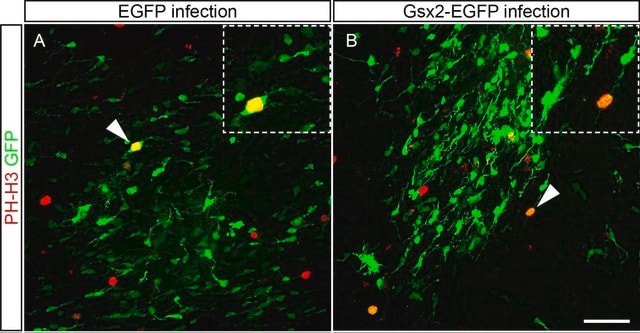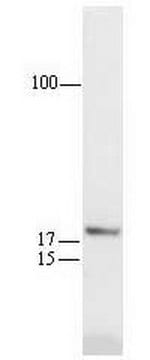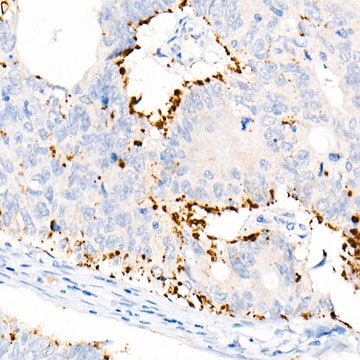05-649
Anti-Chk2 Antibody, clone 7
clone 7, Upstate®, from mouse
Synonym(s):
CHK2 (checkpoint, S.pombe) homolog, CHK2 checkpoint homolog (S. pombe), checkpoint-like protein CHK2, protein kinase CHK2, serine/threonine-protein kinase CHK2
About This Item
Recommended Products
biological source
mouse
Quality Level
antibody form
purified immunoglobulin
antibody product type
primary antibodies
clone
7, monoclonal
species reactivity
mouse, human
manufacturer/tradename
Upstate®
technique(s)
immunocytochemistry: suitable
immunoprecipitation (IP): suitable
western blot: suitable
isotype
IgG1
NCBI accession no.
UniProt accession no.
shipped in
dry ice
target post-translational modification
unmodified
Gene Information
human ... CHEK2(11200)
General description
Specificity
Immunogen
Application
Immunocytochemistry: A previous lot of this antibody has been reported by an independent laboratory to detect Chk2 in HeLa cells.
Immunocytochemistry Analysis: A 1:1000 dilution from a representative lot detected Chk2 in HeLa cells.
Epigenetics & Nuclear Function
Cell Cycle, DNA Replication & Repair
Quality
Western Blot Analysis: 0.1-1 μg/mL of this lot detected Chk2 in RIPA lysates from Jurkat cells. A previous lot detected Chk2 in lysates from HeLa, 3T3/A31, and A431 cells.
Target description
Linkage
Physical form
Storage and Stability
Analysis Note
Positive Antigen Control: Catalog #12-303, Jurkat cell lysate.
Other Notes
Legal Information
Disclaimer
Not finding the right product?
Try our Product Selector Tool.
Storage Class Code
10 - Combustible liquids
WGK
WGK 1
Certificates of Analysis (COA)
Search for Certificates of Analysis (COA) by entering the products Lot/Batch Number. Lot and Batch Numbers can be found on a product’s label following the words ‘Lot’ or ‘Batch’.
Already Own This Product?
Find documentation for the products that you have recently purchased in the Document Library.
Our team of scientists has experience in all areas of research including Life Science, Material Science, Chemical Synthesis, Chromatography, Analytical and many others.
Contact Technical Service








